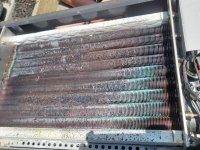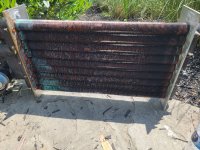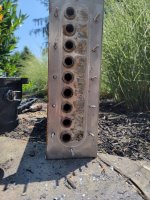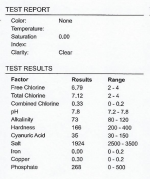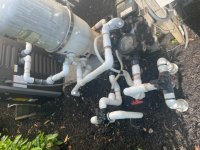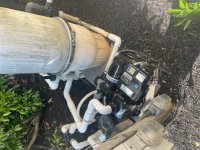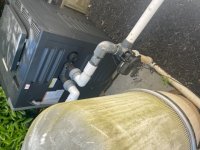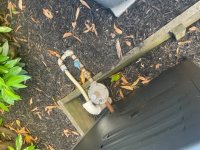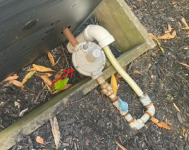Glad to find this forum, hope you all can help 
Had a Raypak heater for 3 years and towards the end of the third year, the heater began to leak and eventually caught on fire and destroyed the entire manifold. Through many, many phone calls, Raypak replaced it and sent us a new one. In just under a month, I noticed the new one leaking in the same way. The service company came out and took the following pictures which were sent to Raypak for review. The previous heater we had lasted over 10 years, any idea what may be causing this?
Other things to note: we have a VSP and a valve for fountains just after the heater. Is it possible there was too much pressure in teh manifold? We are totally perplexed!
Any thoughts appreciated, happy to provide more pictures and info. Thanks all!
Had a Raypak heater for 3 years and towards the end of the third year, the heater began to leak and eventually caught on fire and destroyed the entire manifold. Through many, many phone calls, Raypak replaced it and sent us a new one. In just under a month, I noticed the new one leaking in the same way. The service company came out and took the following pictures which were sent to Raypak for review. The previous heater we had lasted over 10 years, any idea what may be causing this?
Other things to note: we have a VSP and a valve for fountains just after the heater. Is it possible there was too much pressure in teh manifold? We are totally perplexed!
Any thoughts appreciated, happy to provide more pictures and info. Thanks all!


